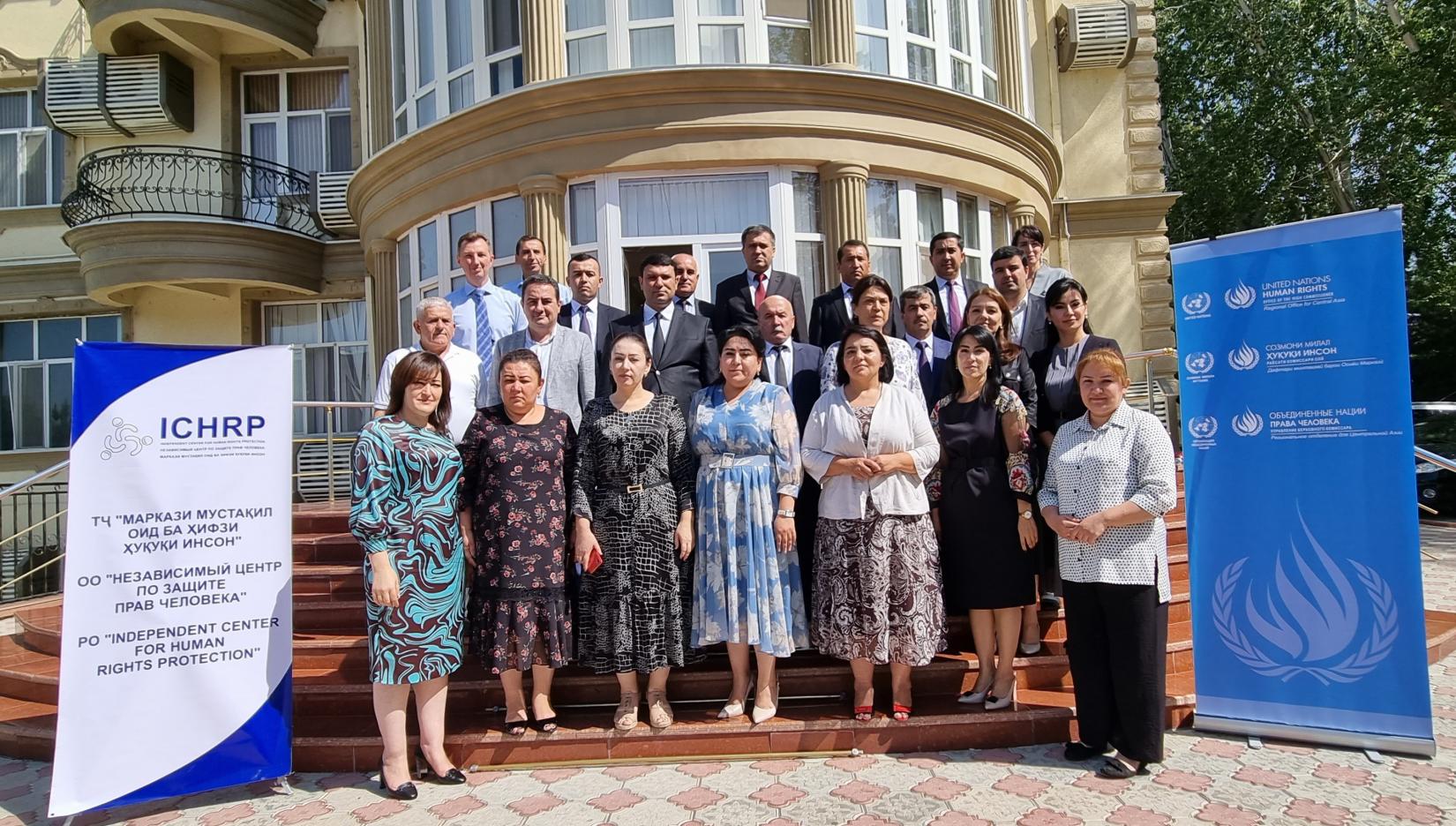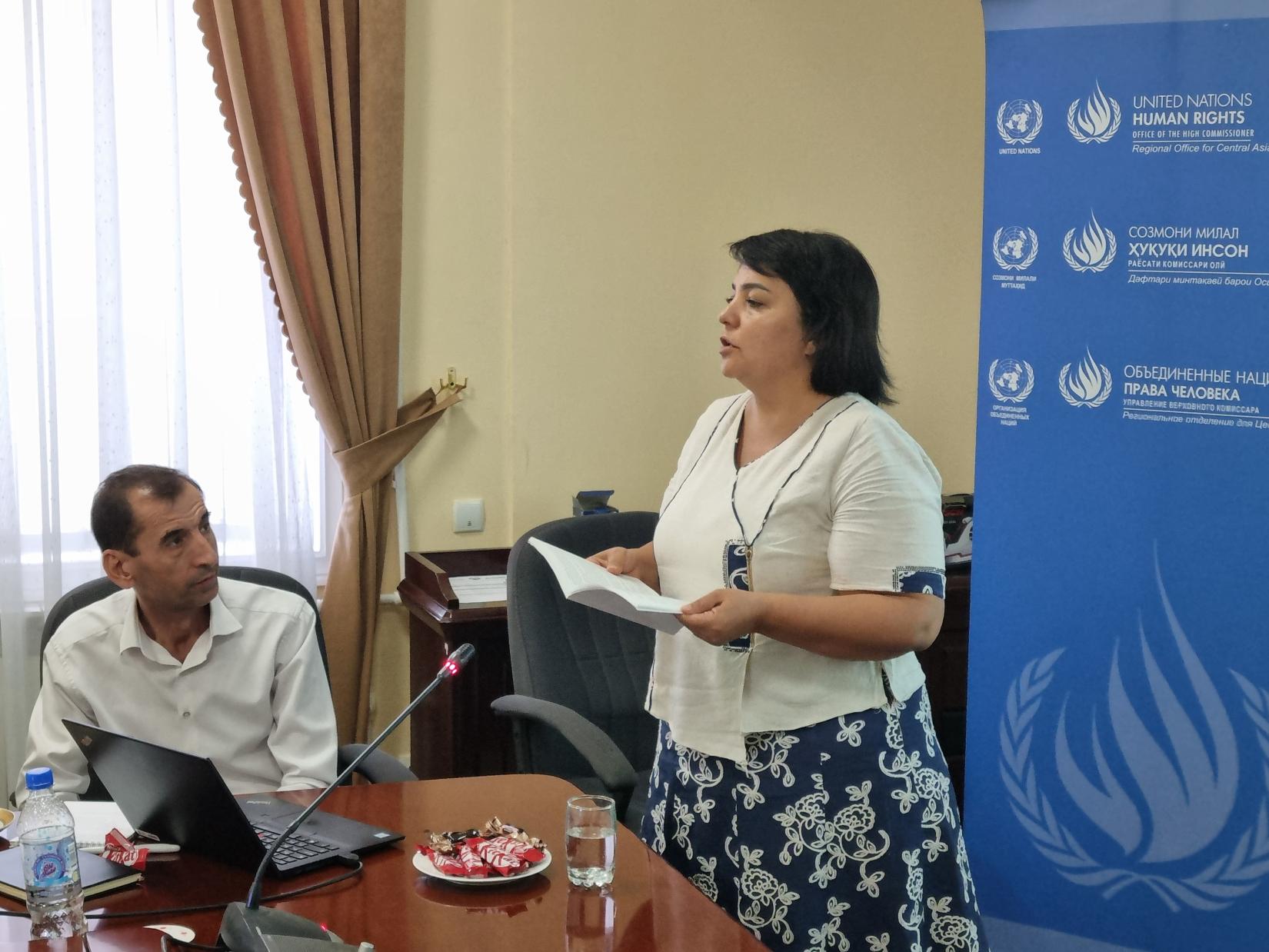Tajik judges enhance their capacity to apply new housing code
05 September 2022
Nineteen judges from the Sughd region of Tajikistan have been trained on international standards on the right to adequate housing and how to apply the provisions of a new Housing Code which entered into force on 1 September 2022.

A two-day training for judges “The right to adequate housing and a new Housing Code” was conducted jointly by the NGO “Independent Centre for Human Rights” and the Supreme Court with the support of the UN Office of the High Commissioner for Human Rights (OHCHR) Regional Office for Central Asia. The training seminar took place in Guliston, Sughd region, on 2-3 September 2022.
Mr. Shodmon Alizoda, Chairman of the Judicial Board on Family Affairs of the Supreme Court of Tajikistan, in his welcoming remarks noted that a new Housing Code contains multiple legislative innovations which have to be carefully studied to ensure their correct application.
He also stressed the importance of partnership with civil society: “We greatly appreciate our continued cooperation with the “Independent Centre for Human Rights”, whose experts have provided us with important expertise during the process of elaboration of the Housing Code and continue providing their support after the Code has been adopted”.

Mr. Suhrob Shoev, OHCHR National Programme Officer, emphasized the interdependence and interrelation of all human rights. He noted, “The right to adequate housing is key for the realisation of many economic, social and cultural rights and is linked, in particular, to the rights to health, education and employment”. He added, “Ensuring the right to adequate housing, especially for vulnerable groups, is an important driver in achieving SDGs”.
During the training, participants learned about the legal safeguards of the right to adequate housing as well as the rights and obligations of homeowners and members of their families. A separate training session was dedicated to the discussion of real-life cases related to protection of the right to adequate housing and adequate compensation. In addition, participants discussed the role of media in the coverage of forced evictions as well as challenges to the effective implantation of the law “On Access to Information about Activities of the Judicial Bodies”.
“Although a number of issues remain to be discussed, the seminar was very helpful in clarifying approaches to application of the new Code’s provisions”, said Ms. Mavjuda Pulodi, a judge of the Supreme Court. “To enjoy the trust of the citizens in Tajikistan, judges need to ensure that administration of justice, in particular related to the right to adequate housing, is transparent, fair and impartial”, she remarked.
As per feedback from participants, the OHCHR will consider organising similar training for judges in other regions of Tajikistan and, to make such capacity building activities sustainable, to support train-the-trainers seminars as well as development of thematic training modules for the Supreme Court’s Judicial Training Centre.



